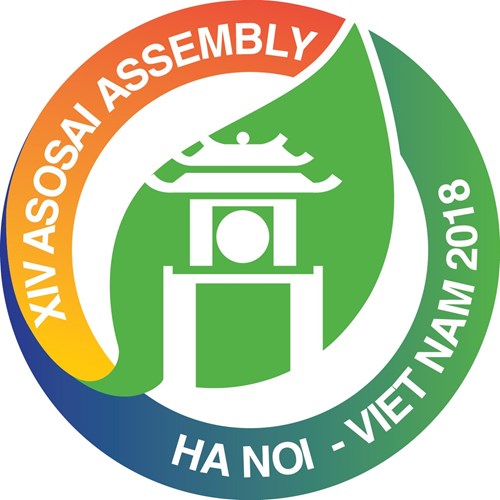On January 24, 1995, the Prime Minister issued Decision 61/TTg on regulations on the organization and operation of the SAV. This is the first legal foundation for the country’s State audit agency, meeting the requirements of the cause of Doi Moi (renewal) and building a law-governed socialist State.
Ever since, the SAV’s development has been closely associated with the country’s political, economic and social events.
    |
 |
|
The hosting of the 14th ASOSAI in September 2018 marks a milestone in the 24-year history of the State Audit Office of Vietnam. Photo: asosai14.vn |
On June 14, 2005, the National Assembly passed the Law on State Audit, which took effect on January 1, 2006, opening up a new stage of development for the SAV.
On November 28, 2013, the 8th National Assembly adopted the Constitution of the Socialist Republic of Vietnam, which became effective on January 1, 2014, with Article 118 stipulating the legal status of the SAV as an organ “established by the National Assembly, operate independently, abide only by the law, and audit the management and use of public finance and assets.” The constitution also stipulates the role and responsibility of the head of the State Audit Office.
With this landmark, the role of the SAV was elevated to a constitutional body, thus enhancing its position, role and responsibility in auditing the management and use o public finance and assets.
Besides, on April 19, 2010, the National Assembly Standing Committee adopted Resolution 927/2010/UBTVQH12 issuing a strategy for the development of the SAV to 2020. The strategy defines the core value of the SAV as “Transparency - Quality - Effectiveness and Constantly Improving Value.”
The implementation of the strategy has contributed greatly to increasing the efficiency, professionalism and effectiveness of the SAV’s operation, catching up with the trend of supreme audit organizations in the world.
As part of efforts to implement the strategy, and based on the Constitution’s stipulation, the SAV coordinated with relevant agencies to research and propose revisions to the Law on State Audit and related laws.
On June 24, 2015, the 13th National Assembly passed the revised Law on State Audit at its 9th session, creating a complete and uniform legal corridor for the organization and operation of the SAV.
Over the past years, the SAV has fulfilled its assigned political tasks through actively reforming auditing methods and working style, improving the quality of auditing planning and quality control. It has paid attention to develop all three types of audits: financial audit, compliance audit and operational audit. The SAV also promoted both general and specialized audits, along with auditing both local and State budget balance.
According to Auditor General Ho Duc Phoc, audits conducted by the SAV have provided information for the National Assembly in considering and approving State budget balance and deciding State budget estimates, as well as helping People’s Councils at all level in supervising and approving local budget balance, assisting ministries and agencies in enhancing the efficiency and effectiveness of the management and use of public finance and assets.
The Auditor General said with its elevated legal status, the SAV has been able to enhance its prestige in the international arena, as demonstrated in the SAV’s hosting of the ASOSAI’s 14th Assembly in 2018 and assuming the chair of ASOSAI during 2018-2021.
Source: VNA